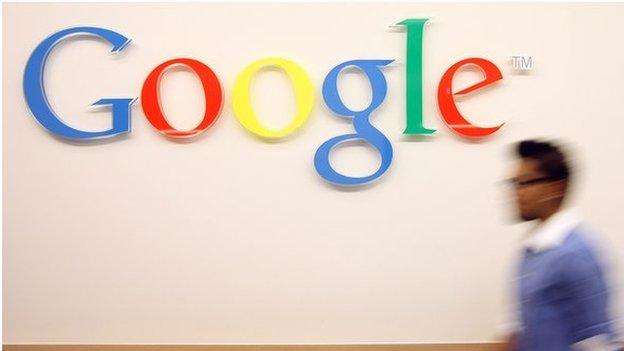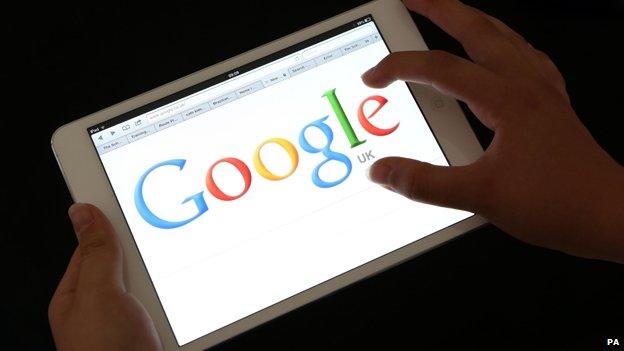Peers say 'right to be forgotten' principle unreasonable
- Published
- comments

Google has received 70,000 requests to remove or block links to information
Demands for search engines to remove personal data from the web to respect people's "right to be forgotten" are unreasonable, a group of peers says.
The Lords Home Affairs EU Sub-Committee also said it was wrong to give search engines such as Google the job of deciding what should be removed.
It said the UK must ensure that updated EU regulations protected accurate material in the public domain.
The government said there should not be an "unfettered right" to delete data.
The European Court of Justice ruled in May that links to irrelevant and outdated data should be erased on request from searches , sparking a fierce debate about censorship of material and right to privacy.
'Vague and unhelpful'
Search giant Google has received more than 70,000 requests to block links in response to the ruling, which was based on Article 12 of the EU's directive on the protection of personal data, which was drawn up three years before the company even existed.
In a new report, the cross-party committee warned of the danger of trying to "enforce the impossible", saying the judgement had resulted in material being blocked on the basis of "vague, ambiguous and unhelpful" criteria which did not reflect the current state of information technology.
Its chair Baroness Prashar said neither the directive nor the court's interpretation of it took into account the "incredible advancement in technology" seen in recent years.
While it would always be difficult for regulations and the body of law underpinning them to keep pace with technological changes, she said they must be sensible and responsive to changes in society.
"Anyone anywhere in the world now has information at the touch of a button, and that includes detailed personal information about people in all countries of the globe," she said.
'Data controllers'
Enforcement of the "right to be forgotten" principle, she said, would put an unreasonable burden on small search engines, in terms of dealing with requests to remove information.
She added: "We also believe that it is wrong in principle to leave search engines themselves the task of deciding whether to delete information or not, based on vague, ambiguous and unhelpful criteria.
"We think there is a very strong argument that, in the new regulation, search engines should not be classed as data controllers, and therefore not liable as 'owners' of the information they are linking to.
"We also do not believe that individuals should have a right to have links to accurate and lawfully available information about them removed, simply because they do not like what is said."
The cross-party committee took evidence from the Office of the Information Commissioner, Lib Dem justice minister Simon Hughes and Google itself among other witnesses.
Mr Hughes said a balance must be struck between upholding freedom of expression and the right to privacy,
"We welcome the support of the Lords for our position in negotiating new European data protection legislation," he said.
"I agree that it is neither accurate nor helpful to say that the recent judgment of the European Court of Justice has given a right to be forgotten. We need to be clear that the judgment does not give individuals an unfettered right to have their personal data deleted from search engine results."
- Published13 May 2014

- Published14 May 2014

- Published13 May 2014
